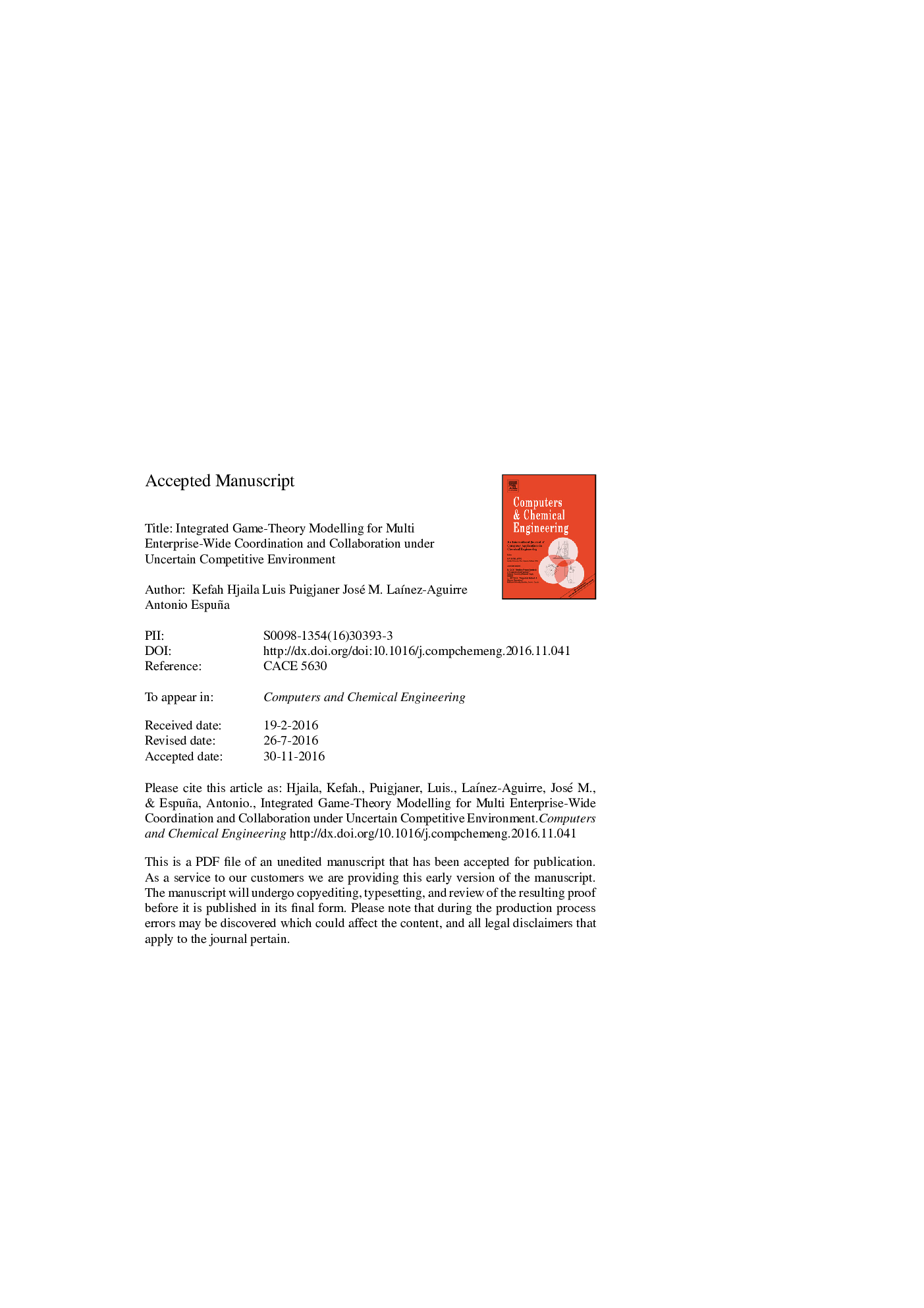| Article ID | Journal | Published Year | Pages | File Type |
|---|---|---|---|---|
| 4764741 | Computers & Chemical Engineering | 2017 | 52 Pages |
Abstract
In this work, an integrated Game Theory (GT) approach is developed for the coordination of multi-enterprise Supply Chains (SCs) in a competitive uncertain environment. The conflicting goals of the different participants are solved through coordination contracts using a non-cooperative non-zero-sum Stackelberg game under the leadership of the manufacturer. The Stackelberg payoff matrix is built under the nominal conditions, and then evaluated under different probable uncertain scenarios using a Monte-Carlo simulation. The competition between the Stackelberg game players and the third parties is solved through a Nash Equilibrium game. A novel way to analyze the game outcome is proposed based on a win-win Stackelberg set of “Pareto-frontiers”. The benefits of the resulting MINLP tactical models are illustrated by a case study with different vendors around a client SC. The results show that the coordinated decisions lead to higher expected payoffs compared to the standalone case, while also leading to uncertainty reduction.
Keywords
gigabyteMILPWWTPEnterprise-Wide OptimizationEWONLPCPUMINLPSCMKKTKarush–Kuhn–TuckerGAMsstandard deviationMixed integer linear programmingNon-linear programmingMixed integer non-linear programmingLinear programmingWastewater treatment plantNash equilibriumCompetitionSupply chainUncertaintyRaw materialSupply chain managementmeanProcess system engineeringmegawattGame theoryCoordinationcentral processing unitOperational researchPSEGHzGigahertz
Related Topics
Physical Sciences and Engineering
Chemical Engineering
Chemical Engineering (General)
Authors
Kefah Hjaila, Luis Puigjaner, José M. LaÃnez, Antonio Espuña,
